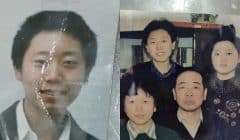Complicity of China’s Judicary
As a 2002 report by the International Commission on Jurists states, the Chinese judiciary is not independent, but rather “subject to the control of the leadership of the Chinese Communist Party (CCP)” (report).
This subordinate relationship stems from a number of factors, the most evident being that all judges are Party members bound by Party discipline. Judges are appointed and removed by a Party committee at the corresponding level and the “political-legal committee” underneath it. The judges’ job security, therefore, often depends on their compliance with Party instructions, certainly when it comes to sensitive cases.
It is for these reasons that once CCP leader Jiang Zemin banned Falun Gong, the Chinese court system emerged not as a bulwark against injustice, but as a tool of repression.
In October 1999, three months after the overt persecution campaign was launched, the Supreme People’s Court began issuing directives to lower courts with instructions as to how they must collaborate in the campaign against Falun Gong (link).
The following month the Supreme People’s Court ordered judges to fulfill their role by “resolutely imposing severe punishment.” Indeed, one week later the first “trial” of Falun Gong adherents took place in Hainan province. At the end of a hearing that lasted less than one day, all four adherents were sentenced to periods of up to 12 years in prison on the vague charges of “using a heretical organization to undermine the implementation of the law.” Hundreds of others have since been jailed for to up to 18 years (for a chart of charges and sentences, see Amnesty International’s report).
The vast majority of the Falun Gong who are jailed, however, are never even walked through the pretense of appearing before a judge. Instead, they are sentenced to up to three years of administrative detention in “re-education through labor” camps (laogai or laojiao). In these cases the courts’ complicity is more subtle – here it takes the form of refusing to judicially review adherents’ cases or punish the torture (link) and slavery (link) inflicted upon them.
Prominent human rights attorney Gao Zhisheng discovered the depth of collusion first-hand when attempted to file a complaint with the Shijiazhaung Intermediate Court on behalf of a practitioner detained in a local labor camp. The presiding judge took one look at the file and said, according to Gao:
Are you aware that lawyers aren’t allowed to take cases like this? The court belongs to the Chinese Communist Party, and so do the laws. There are currently orders from above to reject these cases, and that’s the end of it. Go talk to whoever you like and go file your case wherever you like. We don’t care. (Gao’s open letter to the National People’s Congress: link) .
Falun Gong adherents who work as judges have also not been spared severe persecution, losing their jobs and even their lives.
In most countries that operate under rule of law the grounds for dismissing a judge are very limited. But China’s Judges Law has “a list of prohibited acts that would trigger removal,” including a “catch-all clause” that allows judges to be dismissed over anything the Party finds problematic, according to a International Commission on Jurists report (link).
In one case widely reported by the Associated Press and Reuters, a former High Court judge from Jiangxi province was imprisoned and later died of Leukemia, a disease he had recovered from after he began practicing Falun Gong (see news release), read the judge’s open letter, written before his death (link).






